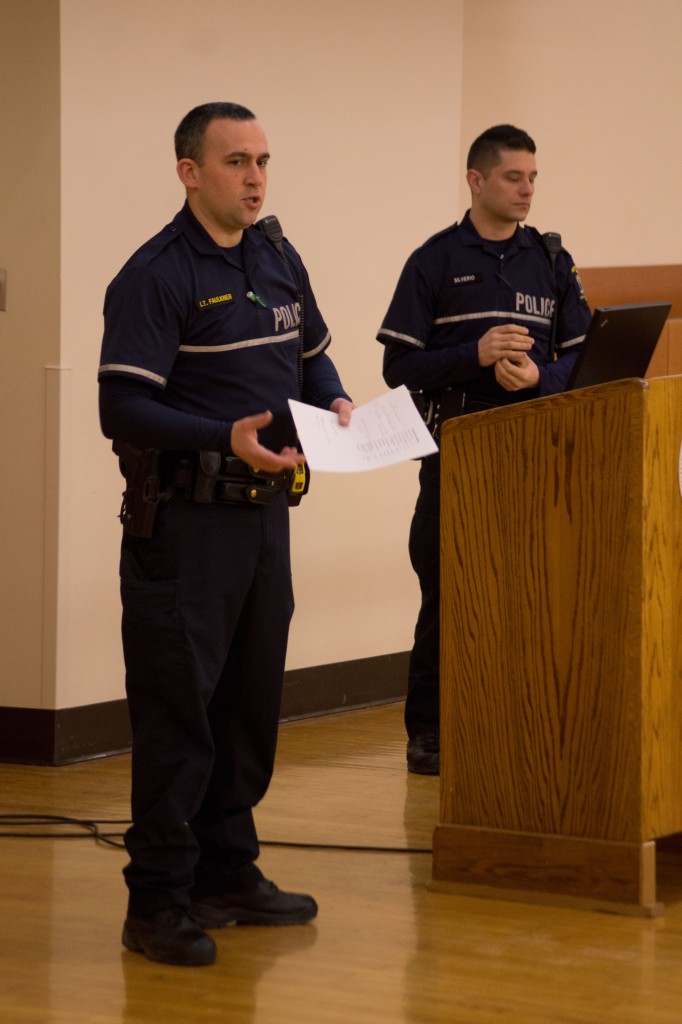
Nicole Vogt said she has avoided taxi cabs for the past year and a half. According to her, it was when she witnessed a physical altercation between an intoxicated student and a taxi cab driver that she got scared away.
“It was a dangerous situation,” said Vogt, a junior double-majoring in economics and geography. “I would have loved to know if I could have gotten that cab driver fired or removed from the greater Binghamton area.”
Vogt and others who wanted to explore the rights and regulations of taxi riders piled into the Mandela Room in the Old University Union on Wednesday night to listen to Binghamton University Police Department Lieutenant Steve Faulkner and the director of the Broome County Government Security Division James Dadamio.
At the event, Faulkner and Dadamio discussed taxi cab safety and answered students’ questions about specific experiences. With the help of Student Association President Alexander Liu, Faulkner made cards about important points from the event, including the fact that the drivers are required to return lost property and display their driver’s licenses, and handed them out to housing community directors, Off-Campus Community Council (OC3) and the SA to distribute to students.
Faulkner told students that the person who calls for the cab has the right to refuse the pickup of additional passengers and that, unless specified upon entering the cab, a taxi driver is required to bring any student that has paid his or her fare to his or her destination.
“Since the students are huge users of the taxi cab industry, education is key,” Dadamio said. “If I felt unsafe in a situation, I would remove myself from the situation. Get out of the cab, call another taxi or call the police if you need help, but then follow up and report it.”
Students like Christina Loguidice, a junior double-majoring in political science and economics, were surprised to learn that cab drivers can face fines up to $150 for overloading their car, which happens when there are not enough seat belts for every passenger. She said she has been in cabs that have been packed with 15 or more girls.
“I was really frustrated and wanted to get out at that point, but I was shoved into the back,” Loguidice said. “In retrospect, I think that I really put my life in danger and that felt like a violation of my rights.”
Dadamio and Faulkner both stressed that if a student felt his or her rights had been violated, the best course of action is to take a picture of the cab driver’s license plates, write down the name of the driver and report the incident on the Broome County website.
Liu, a senior majoring in philosophy, politics and law, said that he believed the event was a great idea because it set a precedent for more of these types of educational events in the future.
“The students had a lot of questions, the business cards were a hit and now that this event has worked, the next step is that this happens more often,” Liu said. “We want to make sure that when students come to Binghamton, they know from the beginning that they have rights in taxi cabs and if things are happening there are mechanisms in place to help them.”
Sara Downie, president of the College-in-the-Woods College Council and a junior double-majoring in math and geography who helped organize the event, said that it was put on to avoid further problems with taxi drivers.
“Everyone needs to use a cab every once in a while but they don’t think about asking for their rights,” Downie said. “I think it’s important that people know so that they don’t do whatever the cab driver says because they don’t have any other form of transportation.”


